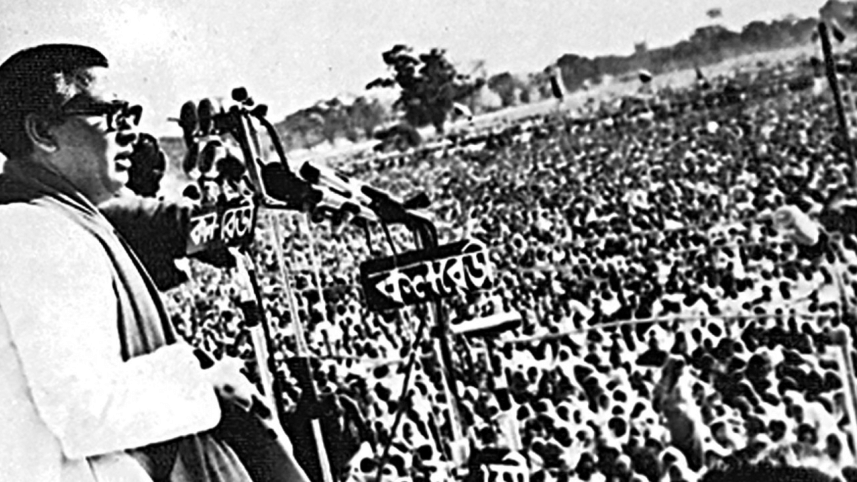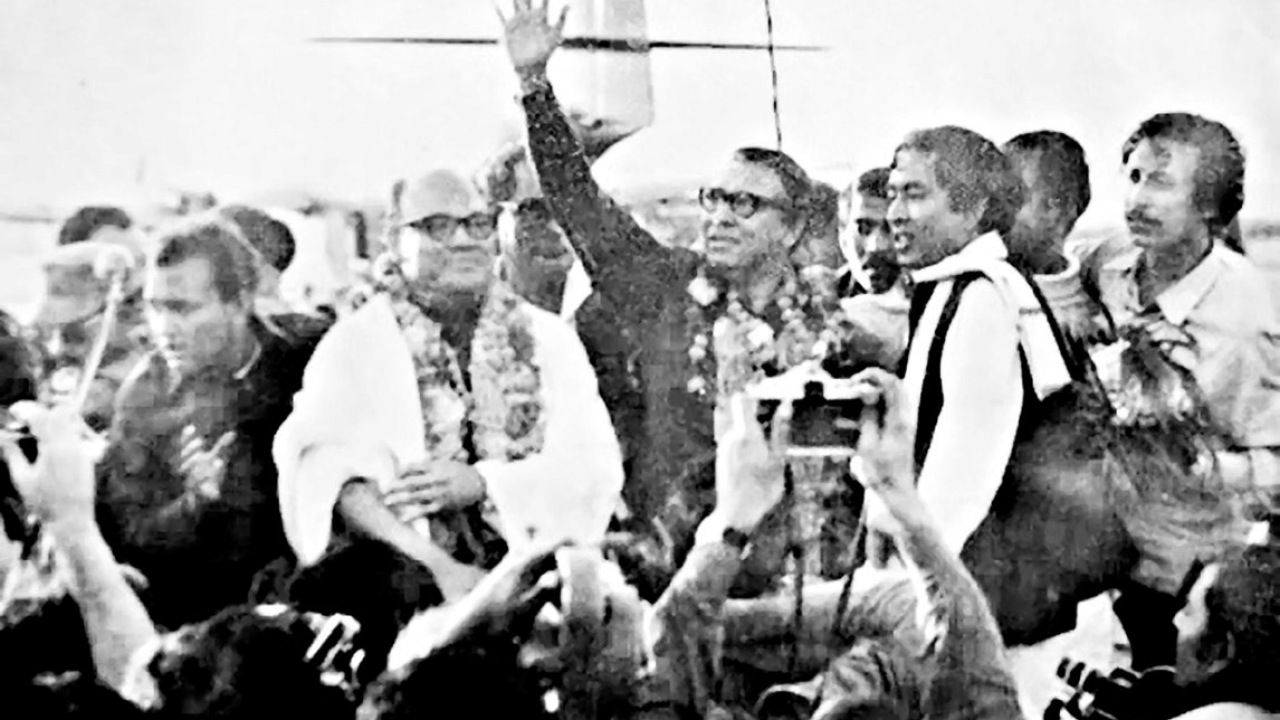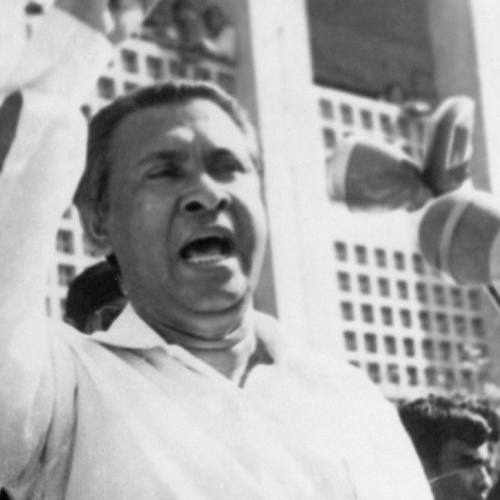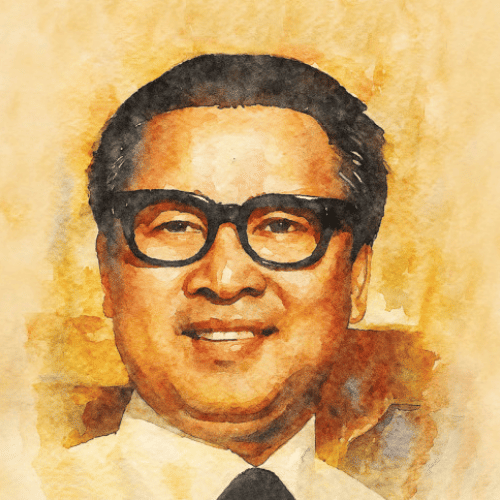The Last Republican

I. The Two Novembers
Each November, two dates sit uncomfortably close to one another in our national calendar. On November 4, 1972, Bangladesh ratified its first post-independence Constitution—an ambitious document born out of war, aspiration, and a clear political vision. Just three years later, on November 3, 1975, four national leaders—Tajuddin Ahmad, Syed Nazrul Islam, AHM Qamaruzzaman, and Captain Mansur Ali—were executed inside Dhaka Central Jail. It was one of the darkest moments in our political history.
The juxtaposition is not merely symbolic. It marks a turning point, underscoring both the fragility of democratic gains and the cost of betraying the very foundations upon which the state was built. The same state that had drawn legitimacy from constitutionalism in 1972 had, by 1975, begun operating through secret detentions and extrajudicial killings. In many ways, the assassination of the four leaders marked both a political purge and a collapse of republican ambition. The moment of 1972, for all its limitations, reflected an aspiration to build an accountable, inclusive political order. By 1975, that aspiration had disintegrated under factionalism, paranoia, and brute force.
As we remember November for both its triumph and its tragedy, it is worth revisiting Tajuddin Ahmad's political ethic—one that was foundational for the nascent republic. This is not a romantic recollection of a party figure but a search for what responsible statecraft once looked like and what it might look like again. Tajuddin helped construct a legal framework for a new state, aware that without recognition, liberation could easily have been dismissed as secession. He led a government without territory, formed ministries without infrastructure, and coordinated a war economy without resources. Tajuddin was not a politician in pursuit of personal glory. His politics was not driven by charisma or ideology alone. He was, above all, an institution-builder. It was a politics shaped by discipline—legal, administrative, and democratic.

Tajuddin's death marked the beginning of the Republic's undoing. Yet he should not remain a mere figure of nostalgia. His political method deserves study. Had he survived, our political culture might have carried a very different memory.
II. A Generation Denied Participation
Tajuddin Ahmad was not born into power. He did not come from a landed family. Politics was not handed to him. What he inherited instead was a generation's hunger for participation—stifled for decades by the centralisation of Pakistani military rule and the racialised exclusions that defined East Pakistan's place within the federation. He belonged to a generation whose political consciousness had been shaped by both the anti-colonial movement in British India and the experience of exclusion under the centralised state of Pakistan.
His mentors—many of them veterans of the pre-1947 anti-colonial struggles—had fought to secure representative governance. That generation also had much to prove. The British overlords under whom Tajuddin's generation grew up had long assumed that the natives were incapable of governing themselves. Legislative assemblies, courts, and the civil service were key battlegrounds for representation under colonial rule. In postcolonial Pakistan, the overlords changed, but the struggle did not.
Tajuddin's legacy invites a harder question: can a republic sustain itself on the basis of charisma and populism at the cost of inclusion, deliberative democracy, and procedural discipline?
Tajuddin brought to politics both institutional discipline and an ethical sense of public service, forged in the struggles of the 1950s and 60s. His early political sensibilities were shaped by protest, not privilege. Like many of his generation, he entered politics through student movements, grassroots organising, and legal training. His commitment to law was never rhetorical. Today, it may be easy to dismiss law as mere formalism or as a mask for violence. Tajuddin saw it differently—as the essential framework for political freedom. His republicanism was grounded in the belief that new nations must be built slowly, deliberately, and with care and process—not with utopian haste.
Tajuddin's politics did not depend on slogans or spectacle. He was not a magnetic orator like Mujib. What made him indispensable in 1971 was his reliability. When the military crackdown began in March that year, his decision to cross into India was anchored in a structural understanding of sovereignty. He recognised that the creation of an independent Bangladesh required not just a liberation movement but a functioning government capable of commanding international recognition. A legitimate claim to statehood, he knew, required more than symbolic declarations.

III. Administration in Exile
Tajuddin Ahmad approached politics with a kind of steady seriousness that is rare in revolutionary contexts. He worked meticulously to structure and staff ministries, oversee refugee coordination, and campaign for international recognition. One episode from this period is worth recalling—as narrated by Julian Francis, a longtime friend of Bangladesh who was working for Oxfam at the time.
A large consignment of dehydrated mashed potatoes had been sent by the Canadian government for distribution in the refugee camps, but its delivery was stalled by bureaucratic confusion. Tajuddin personally tested samples before approving their distribution. He cooked the potatoes himself, experimenting until he could determine a preparation method that made the food both palatable and safe. He then documented the cooking instructions to be distributed with the food, ensuring that it was neither wasted nor misunderstood.
It was an act at once mundane and political. Tajuddin understood that state-building required granular responsibility in every action. Relief, in this context, represented not just aid but dignity, nutrition, and credibility.
IV. Building the Republic
Tajuddin stepped down from the premiership without resistance when Mujib returned in January 1972—perhaps the only prime minister in Bangladesh's history to cede office without resistance or intrigue. Tajuddin recognised the public's emotional allegiance to Mujib at the time but stayed focused on institutional durability. What mattered was the viability of the republic, and power was a responsibility to be exercised and relinquished when necessary.
The Awami League, once unified in its opposition to West Pakistani domination, soon fractured. It is also worth mentioning that the Awami League, at its founding, was not a dynastic party. It emerged from grassroots anti-colonial resistance in 1949, and for a time, was home to ideologically diverse actors. It never "belonged" to the Sheikhs. In this fragmented landscape, Tajuddin found himself increasingly marginalised. Yet his influence was unmistakable. The 1972 Constitution bore his imprint in its socialist orientation, commitment to secularism, and its focus on equality and the rule of law.
Drawing from his formative experiences during the Partition, the Language Movement, the United Front, and the 1970 election, Tajuddin's politics was rooted in responsibility. This was evident in the way wartime governance was conducted. At the peak of the war, he brought together actors from across generations. His cabinet was not defined by youth alone; it included veterans of previous struggles, like Maulana Bhashani, who was drawn into the wartime national council. That inclusion was intentional. It was designed to ensure political legitimacy not just internationally but domestically. Tajuddin knew that movements cannot be sustained by declarations alone. They require grounding, memory, and process.

For Tajuddin, the post-war moment was necessarily about constructing a functioning state. Tajuddin's method, rooted in deliberation, legality, and administrative patience, was often dismissed, even in his own time, as too slow or burdensome. That dismissal was not incidental. It reflected deeper anti-democratic undercurrents that would come to define Bangladesh's political trajectory from 1975, when both ruling and opposition forces increasingly treated institutional discipline as an obstacle to power. BAKSAL, as the originating point of this authoritarian drift, marked the antithesis of Tajuddin's republicanism, substituting deliberation with decree and dismantling the very pluralism the Constitution had sought to protect. That is the deeper loss of the post-1975 period.
Political actors appear singularly focused on their stake in the future arrangement, scrambling for influence. We are witnessing a bipartisan failure to build democratic participation beyond the capital and beyond the spectacle of student-led protest.
The process of getting to democracy must itself be democratic. What we see today is the opposite. Slogans dominate, but procedures are hollow. Committees and commissions are formed, but accountability remains elusive. Tajuddin's politics was not about quick wins or symbolic gestures. He left behind a politics of hard choices, administrative seriousness, and modest public conduct. By this account, a republic had to be built through law, institutions, and deliberation—a model for democratic responsibility that today's political actors would do well to draw lessons from. Tajuddin's legacy invites a harder question: can a republic sustain itself on the basis of charisma and populism at the cost of inclusion, deliberative democracy, and procedural discipline?
V. Democracy by Undemocratic Means
Today, youth voices are being amplified in public discourse, but the deeper gaps in democratic processes remain unaddressed. There is little commitment to participatory policymaking or long-term institution-building. Political decisions increasingly attempt to bypass public deliberation and representative decision-making. Instead, Bangladesh is dominated by elite-driven blueprints, ad hoc commissions, and opaque interim arrangements. Tajuddin would have rejected such shortcuts. For him, democratic legitimacy had to be earned through public and collective processes, not manufactured through procedural formalism.
The current political moment seems more interested in shortcuts than in settlement. Speed has replaced structure. Decisions are framed as responses to crisis, not as the result of participatory negotiation. In this context, Tajuddin's measured, consultative, and grounded method is a striking reminder that democracy cannot be achieved by undemocratic and non-deliberative means.
BAKSAL—and subsequently, the death of Tajuddin Ahmad and his colleagues in its aftermath—marked the beginning of a pattern of authoritarianism and state violence that has never been fully interrupted. That pattern continued in new forms of enforced disappearances, secret detentions, and extrajudicial practices that operate outside the bounds of law and public scrutiny.
The relationship between the state and its citizens has long been shaped by violence designed to produce fear rather than accountability. Citizens are not engaged as rights-bearing participants. They are policed, managed, and, at times, eliminated. Today, enforced disappearance remains a haunting reality. Citizens vanish in daylight. Journalists are threatened. Activists operate in fear. The security apparatus functions beyond oversight. In this context, the absence of due process is not an aberration but a political choice repeatedly made by those in power. Tajuddin's own approach would have stood firmly against this logic. He worked within constitutional frameworks, even when they were fragile. He believed that the task of a republic was not simply to assert sovereignty but to practise it with consistency, restraint, and respect for the public.
There is a deep irony in invoking Tajuddin, who remains a footnote even within his own party. His contribution to institutional responsibility, administrative seriousness, and the slow work of democratic construction has been replaced by charismatic appeals and symbolic, dynastic politics. History will best remember Tajuddin not as a martyr but as a method. His politics embodied a seriousness that is hard to romanticise—and perhaps that is why he is so easily forgotten.
Conclusion
Bangladesh stands at a political inflection point. Yet no one seems to be articulating a vision that meaningfully includes the most marginalised. Migrant workers, those trapped in rural debt cycles, and victims of land dispossession remain absent from political discourse. Women, minorities, and persons with disabilities—entire communities—are outside the scope of democratic concern. There is little serious attempt to build pro-poor, welfare-based, or redistributive programmes. Calls for constitutional reform or a new political order, when not rooted in democratic inclusion, risk repeating the very exclusions they claim to redress.

Today's moment feels insular, self-serving, and in search of shortcuts. Governance increasingly shows little regard for justice, deliberation, or non-discrimination. The Constitution was meant to be lived—not merely in text but in how laws are passed, how judgments are delivered, and how the state treats its most vulnerable. Exclusion, non-deliberation, and discrimination are the very conditions that make authoritarianism possible and sustainable.
Political actors appear singularly focused on their stake in the future arrangement, scrambling for influence. We are witnessing a bipartisan failure to build democratic participation beyond the capital and beyond the spectacle of student-led protest. This is a legitimacy vacuum, and it should be an ethical concern for anyone invested in a democratic future for Bangladesh.
This moment demands Tajuddin's unglamorous method of patience, compromise, negotiation, inclusivity, and deliberation. In the end, Tajuddin Ahmad may have been the last republican in the full sense of the term. Few after him were able—or willing—to hold onto republican values in the face of consolidation, short-termism, and political convenience. If today's political actors wish to return to democratic practice, not merely secure a one-term electoral victory, they must commit to the hard, slow, and often invisible labour of state-building.
Dr Cynthia Farid is a lawyer and legal scholar.
Send your articles for Slow Reads to slowreads@thedailystar.net. Check out our submission guidelines for details.



 For all latest news, follow The Daily Star's Google News channel.
For all latest news, follow The Daily Star's Google News channel.
Comments